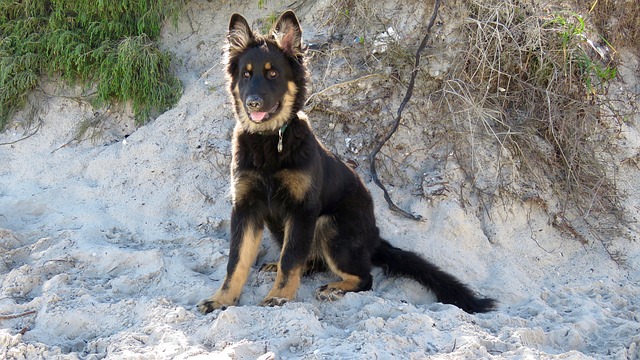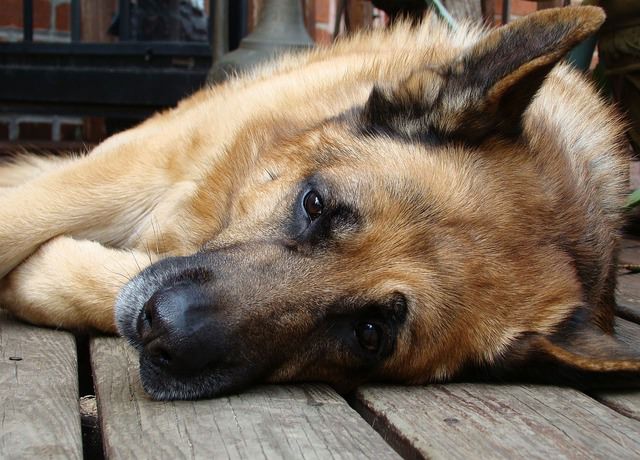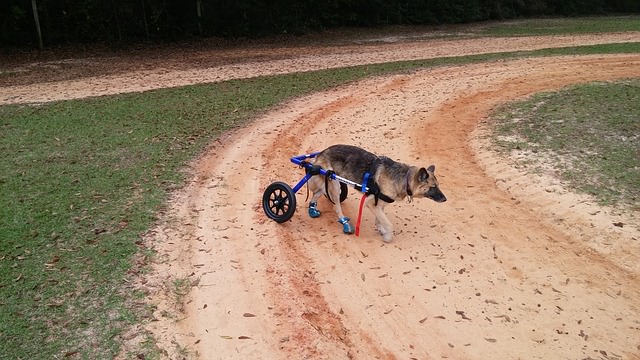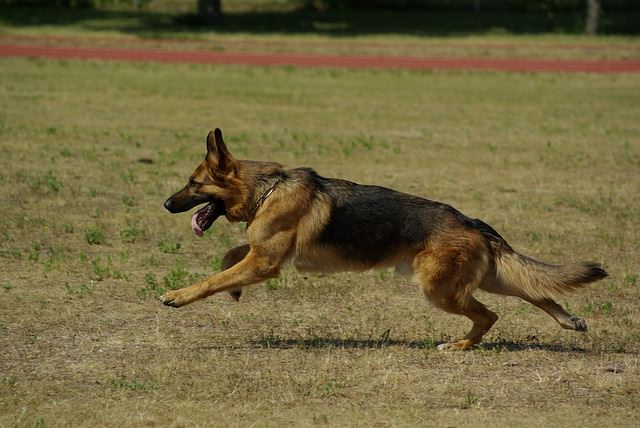German Shepherds are genetically predisposed to several diseases and conditions, but none so prevalent as hip dysplasia. Approximately 19% of all GSDs will suffer from the condition throughout their lives.
Hip dysplasia causes pain and exercise intolerance, and eventually leads to arthritis and difficulty with mobility.

The reason why German Shepherds are so heavily affected is twofold. First, the symptoms often don’t develop until a puppy is nearing or entering adulthood. Dog lovers often adopt or purchase a seemingly healthy puppy, unaware that the disease is laying in wait.
Related: Best Hip Dysplasia Supplements for Canines

Also, there are several breeders out there looking to make a profit from the popularity of the breed. Rather than ensuring that the quality and integrity of their breeding stock is as high as possible, they knowingly continue to breed adult dogs with obvious signs of dysplasia in order to make money from unsuspecting buyers.

In order to avoid this, it is imperative to choose a reputable, certified breeder or adopt an adult dog whose hips are fully developed already. Many breeders have their dogs certified through OFA or PennHip – meaning that a licensed veterinarian has X-rayed the hips under sedation and certified that the animals are suitable for breeding.

If this information is not available from the breeder, ask if you may buy/adopt the dog on the condition of a thorough veterinary exam and healthy X-rays. Be wary if a breeder is unwilling to allow this.
Should you find yourself purchasing or adopting a dog with hip dysplasia, you may notice any combination of the following symptoms:
- Trouble standing up
- Limping
- Favoring one leg
- Running or walking with a “bunny hop”
- Hesitation to exercise
- Reduced activity
- Hesitation on stairs
- Aggression, especially if the hip area is touched

Although you cannot fully prevent your German Shepherd from suffering with hip dysplasia, you can help minimize how severe it becomes, should it develop. Keeping your GSD at a healthy weight is imperative, so be sure to feed puppies a calorie-controlled diet designed for large breed dogs. If you decide to prepare your own food, ask your veterinarian for advice.

Remember to adjust the amount and frequency of feedings as your dog grows, and weigh him often to help prevent excessive weight gain. Monitoring your GSD’s weight throughout his life is vital to keeping pain and complications associated with hip dysplasia at bay.

Controlling the amount, frequency, and type of physical activity can also help. Puppies should go for several small walks rather than one strenuous walk. Avoid rough play, jumping up and down, and long periods of running whenever possible.

Should you find that your Shepherd is limping or showing signs of arthritis, speak with your veterinarian about medications and supplements that may help ease pain. He or she can also recommend lifestyle changes such as therapeutic exercises and weight loss.
In the worst case scenarios, surgical corrections and hip replacements may be necessary to give your dog adequate relief and keep him mobile.
H/T to PetCareRX.com
 Toledo, United States.
Toledo, United States.